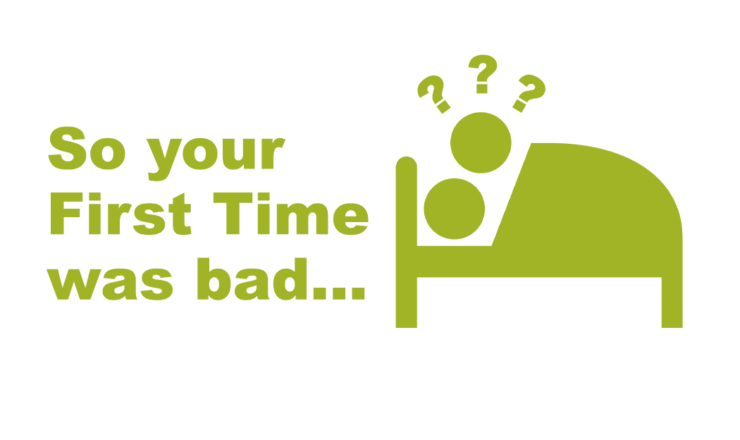

Pregnancy tests are generally very accurate. Both urine and blood tests are looking for a hormone called Human Chorionic Gonadotropin (hCG), which is created in the body after a fertilized egg implants to a person’s uterine wall. Blood tests are more accurate than urine tests, but even the urine tests you do at home are typically around 99% accurate when done as instructed.
| Note about Blood Tests: |
| They can detect pregnancy sooner than 2 weeks after sex where there was a risk of pregnancy (some places online say 1 week, others say 11 days). Blood tests need to be done by a clinician, who send off the samples to a lab. It can be a few days until you get to know the results of the test. |
Here are some questions to ask yourself to determine if the test was done as instructed, or that might affect the results of your test:
Pregnancy tests are generally considered accurate when taken 14 days after you have sex with a risk of pregnancy. A negative result on a test taken less than 14 days of a risk of pregnancy is not considered accurate since it can take up to 14 days for the hCG hormone to reach detectable levels in urine.Lots of pregnancy tests say to wait until after you’ve missed your period to take the test, but that’s not quite the entire story. Depending on the timeline of everything (when you ovulated, when you had sex where there was a risk of pregnancy, etc.), it might not have yet been 14 days since sex with a risk of pregnancy, and therefore maybe not the most accurate result.
Tests may not work properly after their expiration date. It’s worth checking the best before date on the box so you can know if the test it working as intended.
Pregnancy tests are usually pretty straightforward to do, and are accurate if you follow the instructions.
For example: Some tests are designed for the results to be read after 5 minutes. Whatever the results are at 5 minutes are the results to pay attention to and trust. Lots of stuff can happen after 5 minutes, which could compromise the results of the test. Consider taking a photo of the results at the time you’re supposed to read them so you can remember what the results were.
| Note |
| Pregnancy tests are so simple that it can feel like you’ve missed a step or something. This feeling can be especially true if you’re nervous or if you’ve never taken a pregnancy test before. |
As with all urine tests, stuff in your pee is most concentrated (aka easier to detect) from the first pee you take in a day. You should still be able to get accurate results from a pregnancy test no matter when you pee.
Most available urine tests are pretty much the same in terms of accuracy and trustworthiness. Different urine tests include:
How the pee gets to the test spot doesn’t really matter, as long as you are comfortable with that method.
It also doesn’t matter if it reveals the results by a line, colour, symbol, +/-, or digital read out. As long as you followed the instructions, the results can be trusted however they’re displayed.
There’s no connection between the cost of the test and how effective it is. Expensive tests (around $20) claim to detect pregnancy earlier, but they aren’t more accurate than cheaper ones. Sometimes pregnancy tests are available at dollar stores. All urine tests are accurate once it has been 14 days since sex with a risk of pregnancy.
Inaccurate results for pregnancy tests are very rare. When tests are done correctly, false-positives (tests say you are pregnant when you’re not) are more common than false-negatives (tests say you aren’t pregnant, but you are).
False-Positives can be caused by a number of things. These include:
The National Health Service in the UK lists some medicines that can cause a positive result even if you’re not pregnant (Link). You can check the information/instruction booklet that comes with your medication to see if it could affect test results. If there’s no info booklet, you can ask a pharmacist.
This can occur if a person has kidney or bladder issues, or even Urinary Tract Infections.
There’s a chance that a fertilized egg implanted, but was miscarried early on. The implantation could cause your hCG levels to rise, and it may take a few weeks for the levels to go back down.
If you receive a positive test, whether a correct or false-positive, it’s generally recommended to check in with a clinician to confirm the pregnancy and explore your options.
After a couple of negative tests, it might be time to start considering other things that can cause late or missed periods. This could include:
Other medical considerations could include thyroid disorders, low body weight, or ovary issues.
We should also mention that sometimes period are just late. Even if everything’s been the same month to month, and even for the people with the most regular and consistent periods, sometimes you may have a cycle that’s just late. And that’s okay! A blip in your cycle is not necessarily cause for larger concern.
If you are finding yourself in pain, discomfort, or simply a lot of stress about a missed or late period, you can totally check in with your clinician. Noticing when something is different about your body is great, and that’s totally a reason to check in with a medical professional to find out what’s going on.
If you have questions about this topic, feel free to contact one of our peer educators. [Link]
Last Updated: April 2020

First Times having sex are supposed to be glorious and magical, right? But what if yours was awkward or underwhelming? That’s okay, and actually pretty normal! Check out our OpEd column on First Times written by one of our Peer Sexual Health Educators!

We continue our series on Foreplay with more tips and ideas to help expand our definitions of foreplay, and how it can work in real life!

Sexpert Kayleigh Trace (thefuckingfacts.com) talks to us about communication, disabilities, and what to do about sex toys if you’re under 18!